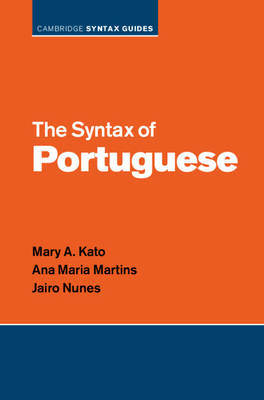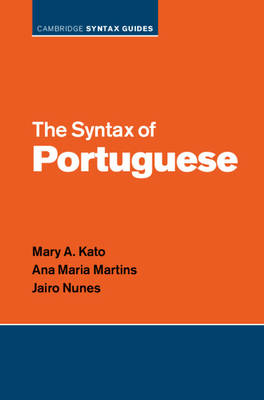
Je cadeautjes zeker op tijd in huis hebben voor de feestdagen? Kom langs in onze winkels en vind het perfecte geschenk!
- Afhalen na 1 uur in een winkel met voorraad
- Gratis thuislevering in België vanaf € 30
- Ruim aanbod met 7 miljoen producten
Je cadeautjes zeker op tijd in huis hebben voor de feestdagen? Kom langs in onze winkels en vind het perfecte geschenk!
- Afhalen na 1 uur in een winkel met voorraad
- Gratis thuislevering in België vanaf € 30
- Ruim aanbod met 7 miljoen producten
Zoeken
Omschrijving
Portuguese is the second most spoken Romance language in the world, and due to recent interest in comparative syntax, the literature on its syntax has increased exponentially, resulting in exciting discoveries of a range of aspects that have hitherto been overlooked. This book provides a theoretically grounded overview of the major syntactic properties of Portuguese, focusing on the differences between European and Brazilian Portuguese. It shows from a theoretical point of view how different syntactic properties are interconnected by comparing and contrasting the variances between pronominal and agreement systems, null subjects, null complements, and word order. It also highlights how small differences in the specification of syntactic properties may yield quite different dialects. It introduces key theoretical points without technical jargon, making the content accessible to specialist and non-specialists alike. It is essential reading for both academic researchers and students of Portuguese language, comparative syntax, Romance linguistics, and theoretical syntax.
Specificaties
Betrokkenen
- Auteur(s):
- Uitgeverij:
Inhoud
- Aantal bladzijden:
- 522
- Taal:
- Engels
- Reeks:
Eigenschappen
- Productcode (EAN):
- 9780521860611
- Verschijningsdatum:
- 6/04/2023
- Uitvoering:
- Hardcover
- Formaat:
- Genaaid
- Afmetingen:
- 152 mm x 229 mm
- Gewicht:
- 861 g

Alleen bij Standaard Boekhandel
+ 426 punten op je klantenkaart van Standaard Boekhandel
Beoordelingen
We publiceren alleen reviews die voldoen aan de voorwaarden voor reviews. Bekijk onze voorwaarden voor reviews.









